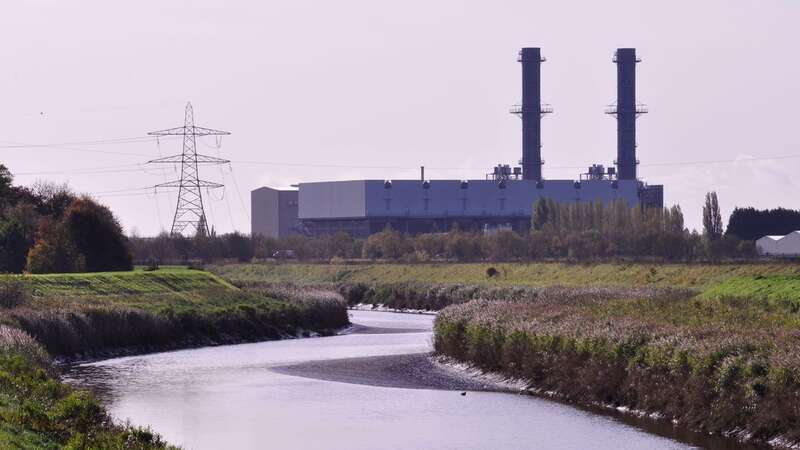Energy Secretary Claire Coutinho has promised that the Government will "stand with" electricity companies as they invest in more gas-fired power stations.
Speaking at Chatham House, she highlighted the ongoing need for fossil fuel gas in our electricity mix, warning that "without gas backing up renewables, we face the genuine prospect of blackouts". The reaction to her statement was mixed.
Some experts agreed that we'll need some unabated gas in the coming years, but warned against letting new gas plants delay our move away from fossil fuels. The Government aims to make UK power grid carbon-free by 2035, as part of a plan to cut emissions by nearly 80% and achieve net zero no overall climate pollution by 2050.
Green groups slammed the announcement, demanding clear policies to end unabated gas by 2035 at the latest. Ms Coutinho said the plan includes increasing renewable sources like offshore wind, and using clean technology to capture emissions from gas power plants or scaling up new technologies such as hydrogen gas-fired power when they're ready.
Around 15 gigawatts (GW) of power generation is set to be lost in the coming years, and the UK will need at least 5GW of new power sources to keep our lights on, she explained. This will include new gas power stations.
 World's coldest city left without heating in -44C freeze as Putin funds war
World's coldest city left without heating in -44C freeze as Putin funds war
She added: "So, I say this to all our electricity generators here in the UK: renewables will play an ever-more critical role in powering Britain, but I will not risk our energy security by refusing to address the difficult short-term choices we need to make. The Government will stand with you as you invest in building more gas power stations. And if investors are serious about reaching net zero without damaging the economy or hiking bills for families, then they should stand with you too."
She said all new gas-powered stations needed to be "net zero ready", so they could connect to carbon capture technology or be changed to burn hydrogen instead of gas, and they would be run less frequently as more low-carbon generation and long-term storage was built.
Dr Callum MacIver, a research fellow at the University of Strathclyde, agreed that the Government was right to focus on keeping the lights on. "It is widely acknowledged that, at least in the short to medium-term, retaining a reasonable capacity of unabated gas plant on the system is a sensible risk management measure. We must guard against 'baking in' a delay to our decarbonisation process."
He stressed the importance of not wasting money on building too much new gas without carbon capture, and highlighted a clear path to using low-carbon hydrogen and carbon capture technology. However, Dr Iain Soutar, a senior lecturer at the University of Exeter, said: "Investing in new gas power stations is a backwards step, away from a more secure and low-carbon energy system."
"Continuing to rely on gas for electricity will mean prolonging our exposure to a volatile international market and therefore high energy costs for consumers."
Rick Parfett, WWF's senior climate policy advisor, said "using homegrown clean hydrogen and batteries is the way to keep the lights on, not importing expensive, polluting gas. The Government must legislate to ensure that any new plants can easily convert to hydrogen and only run for a very limited number of hours until this has happened. To meet the UK's net zero target we need a clear plan for phasing out unabated gas."
Rebecca Newsom, Greenpeace UK's head of politics, said: "This is not the way to deliver billions of pounds of private investment in a clean-energy system fit for the future. Instead the Government must prioritise advancing technologies which can store renewable energy throughout the year, and set out clear policies to seek an end to unabated gas by 2035 at the latest."
Read more similar news:
Comments:
comments powered by Disqus

































